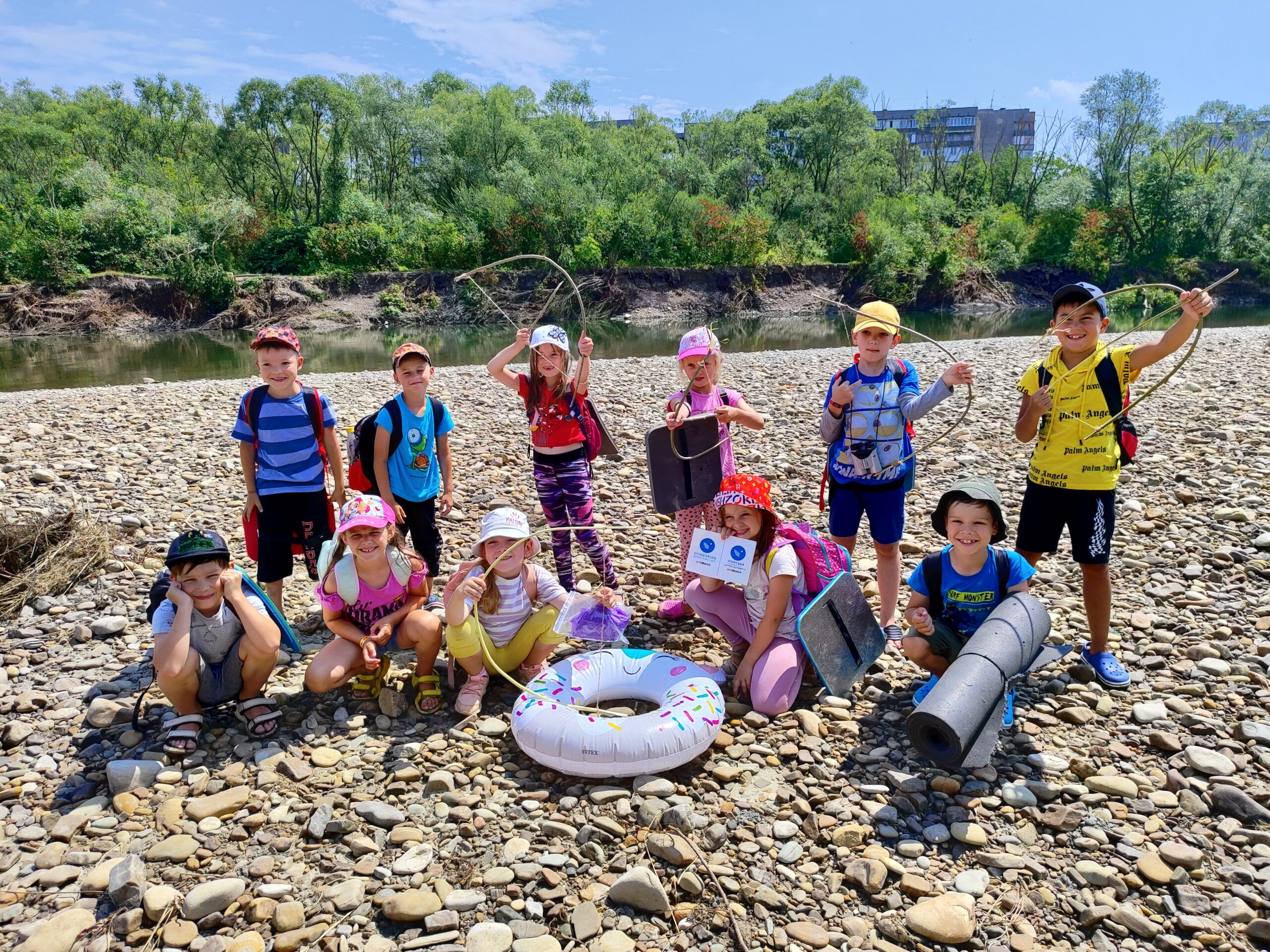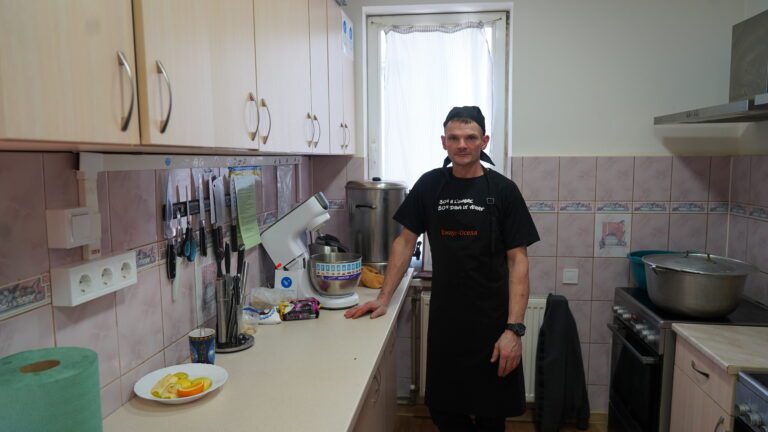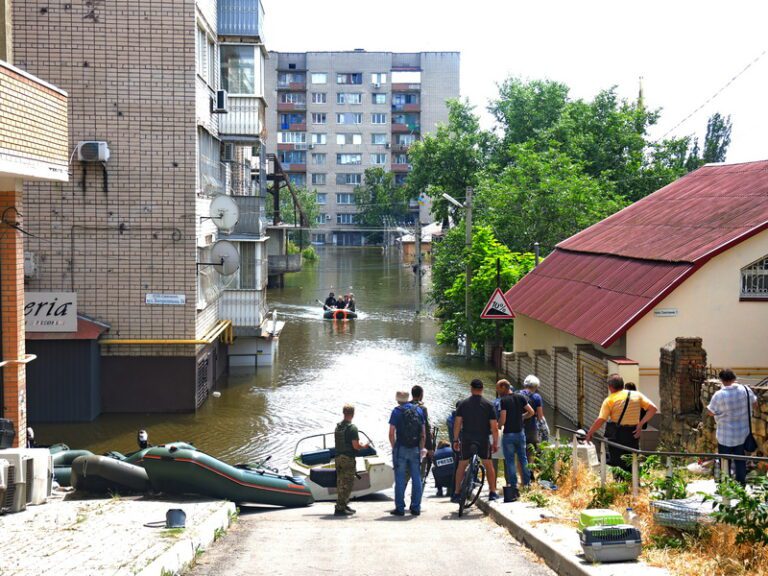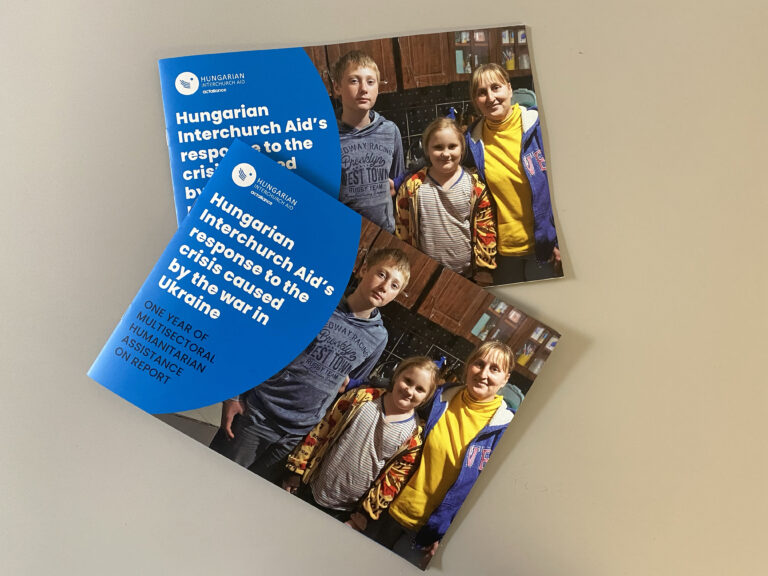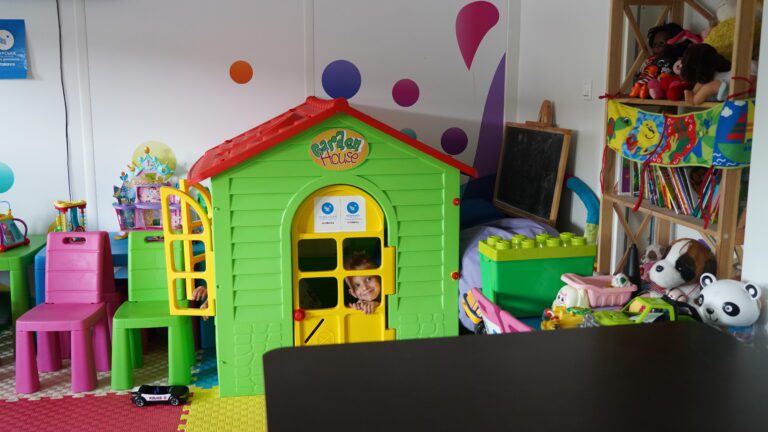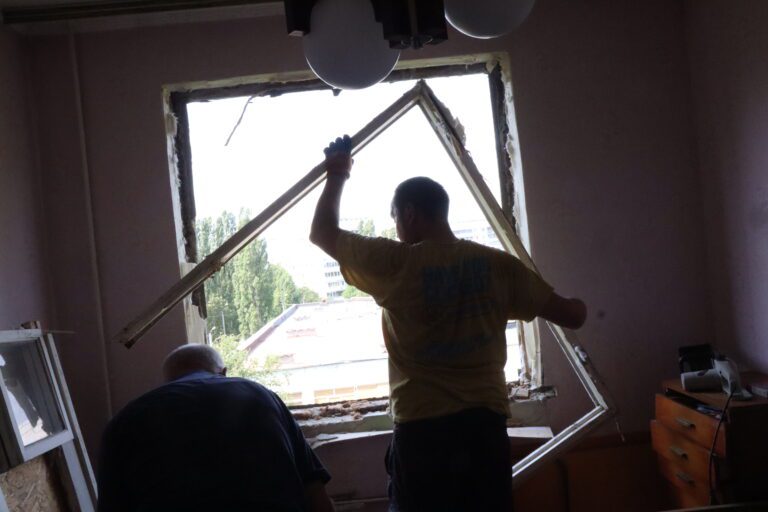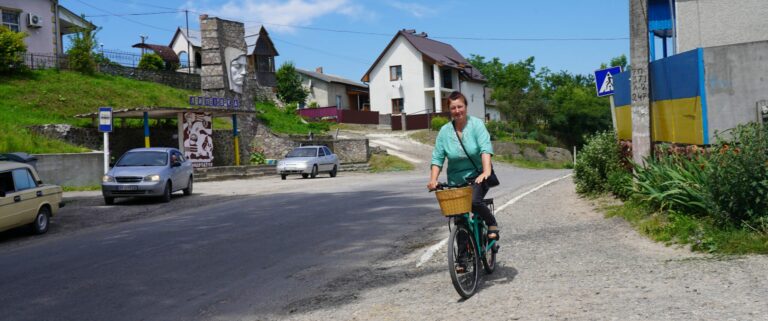Return to happiness: Summer camps for displaced children in Ivano-Frankivsk
Far from the concrete jungle, embraced by the forest, rivers, and in close proximity to the mountains, a recreation centre is hosting a summer day camp for children. We are near Ivano-Frankivsk, a city in western Ukraine, where many displaced people found a new home after fleeing the war in the east of the country. Supporting them by organising a camp for displaced children, the NGO “Learning Outdoors” is one of the 74 groups receiving financial assistance from Hungarian Interchurch Aid and Christian Aid as part of their Flexible Small Grants (FSG in short) programme. If we were to judge the project based on the loudness of children’s laughter, the camp would be one of the most successful ones.
The main goal of the summer camp is to develop children through interaction with nature. The NGO implements an adaptive program for children based on their interests. They arrive in the morning every day, from then on, “time is spent playing active games, relaxing in nature, and hiking” – explains camp leader Marichka Chaikovska. In total, 60 children from the East had the opportunity to participate in the summer camp. “We form the mixed groups of IDP children and children who came to the camp on a commercial basis. In this way, we help displaced children integrate into society, get rid of the stress, relax, and experience childhood to the fullest” – and indeed, war seems like a distant fever-dream when strolling through the camp grounds.
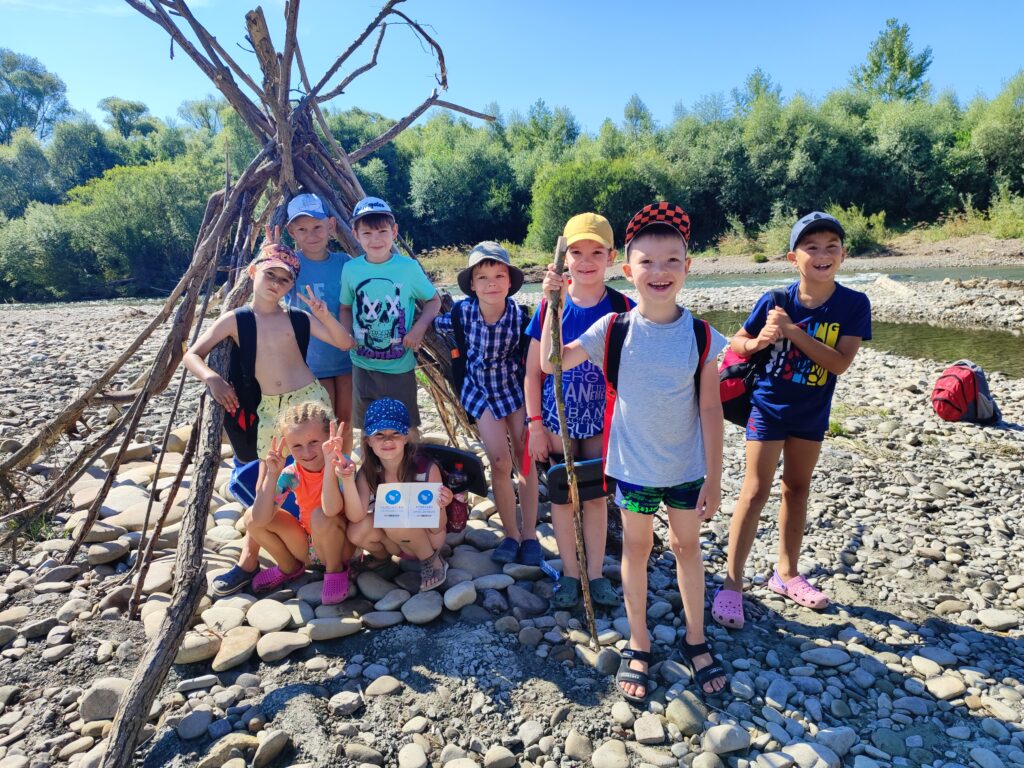

This year’s camp started on June 15 and runs throughout the summer. Every two weeks, a new group of children aged between 6 and 10 years arrives. Each turn consists of 15 to 17 kids, allowing them to get to know each other and reduce the stress of being in a new environment. “Many kids stay friends after they return home from camp, which is a great joy for us. The children not only had a good time, but also found friends.” A group hike to the Carpathians takes place at the end of the stay.
Before the hike, instructors gather the kids in a gazebo to remind them the rules of safety. Luckily, the children are fully prepared: hats on their heads to protect them from the hot sun, inflatable lifesavers slung over their shoulders, ready to swim. “Today the kids are going to the river, and we will teach them water safety,” says the instructor. The group of 15 children is supervised by 3 instructors. The formula is: 1 instructor for 5 children – this allows them to pay full attention to everyone and ensure that kids have fun in a safe way.
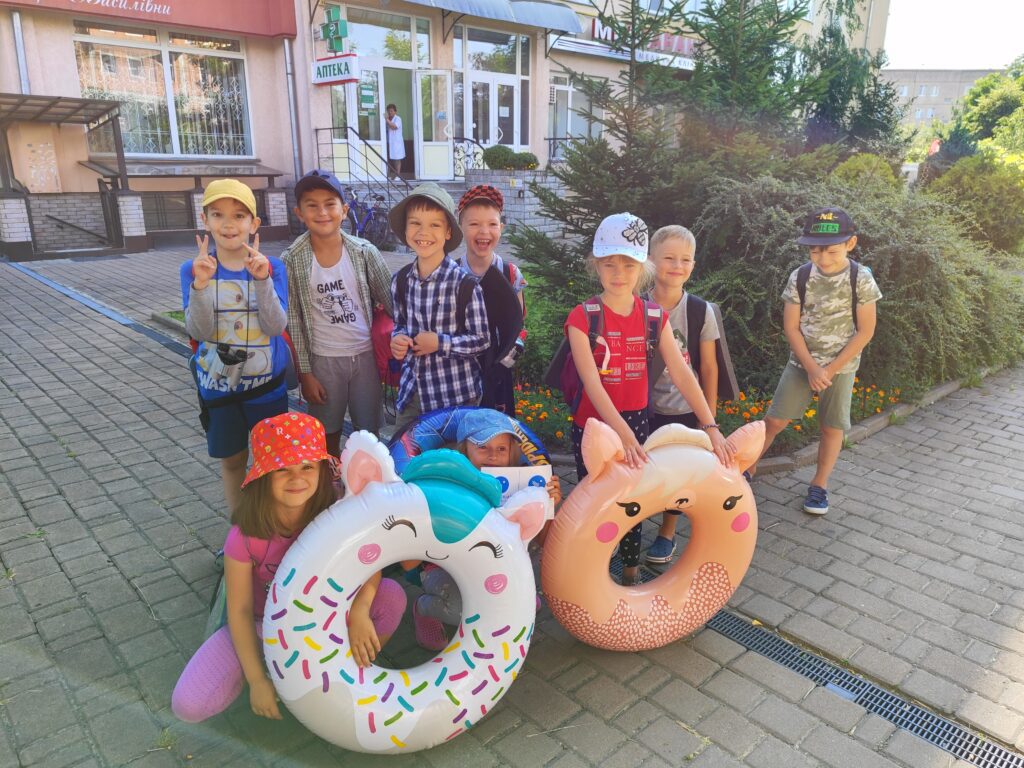

Camp instructors are people with extensive outdoor experience in hiking and survival in the wild. They are also required to have monthly training with a psychologist who is supervising them. “Working with children who have certain psychological challenges due to the war requires special knowledge, and we want the coexistence in the camp to be comfortable for the children, and need the instructors to behave professionally in case of an emergency,” says Marichka.
The time spent at the camp has a positive effect not only on the children, but also on the families’ peace of mind. In their feedback, parents’ talk about their children returning home each time increasingly emotionally stable, refreshed, and full of new experiences. The stress of a hard school year in a situation of war, when children are forced to spend half of their time in shelters or study remotely, is left behind in the high mountains and cool rivers thanks to the cooperation of the local NGO, HIA and Christian Aid.
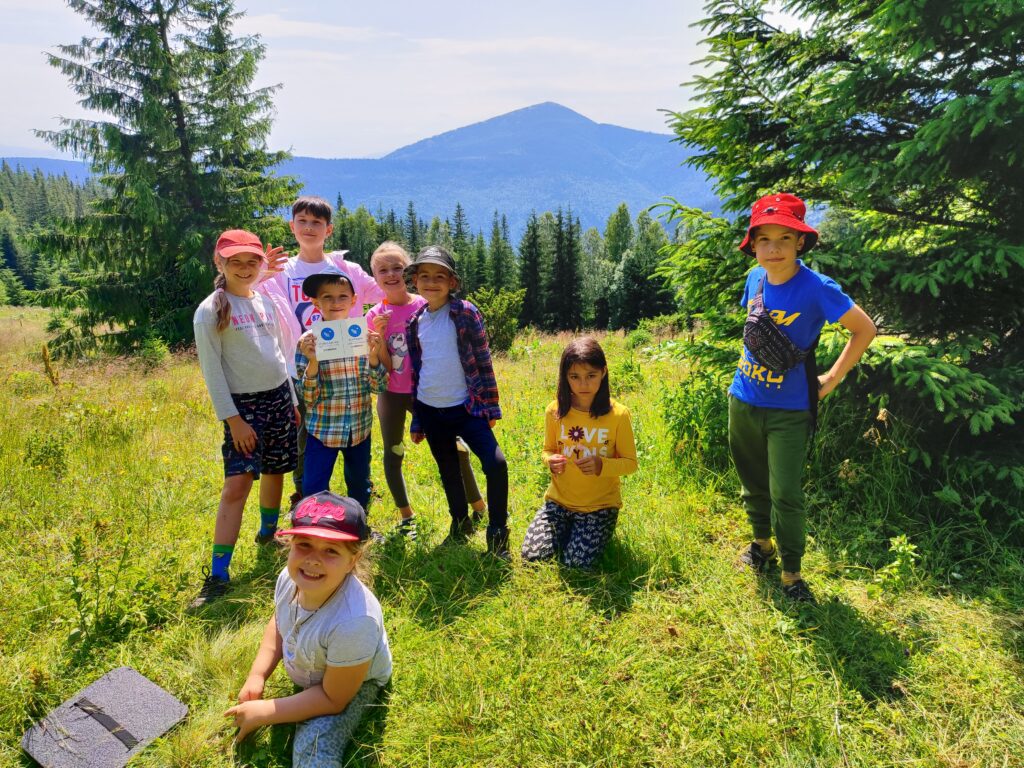

Seeing the changes realised through the camp, Marichka can’t help but feel proud. “This year we had a boy with diabetes. His parents left their son at the camp at their own fear and risk, given that the child needed daily insulin injections. The child has weak health and no experience of long hikes – it was not easy for him to travel a long way along the forest trails. Nevertheless, everyone called him “the spark plug”. He was the one who invented the most interesting games, always preferred difficult hikes, and was the first one to wake up in the morning ready for adventure. He once said that “this was the best summer of his life.” Before that, his parents had never sent him anywhere because they were afraid for his health, so here he finally felt like a normal kid. The only thing that reminded him of his illness were the daily insulin injections given by his instructor.”
According to the camp leader, there has been barely any conflict between the children. After all, nature is the best healer of war trauma. The kids are busy moving around a lot, fording the river, making bonfires, learning to pitch tents, and exploring different forms of art that is therapeutic to them. Aggression and quarrels have nowhere to come from, because all of their energy is spent on climbing mountains, hanging hammocks, playing in the water and making bows and arrows from the branches of young trees.
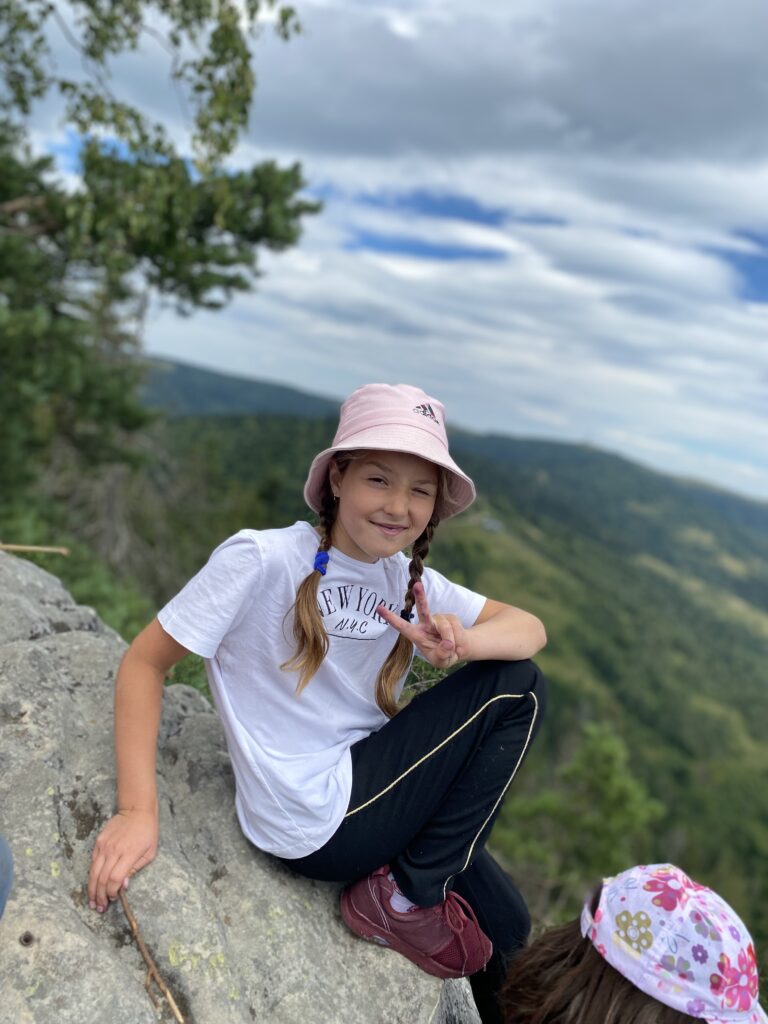

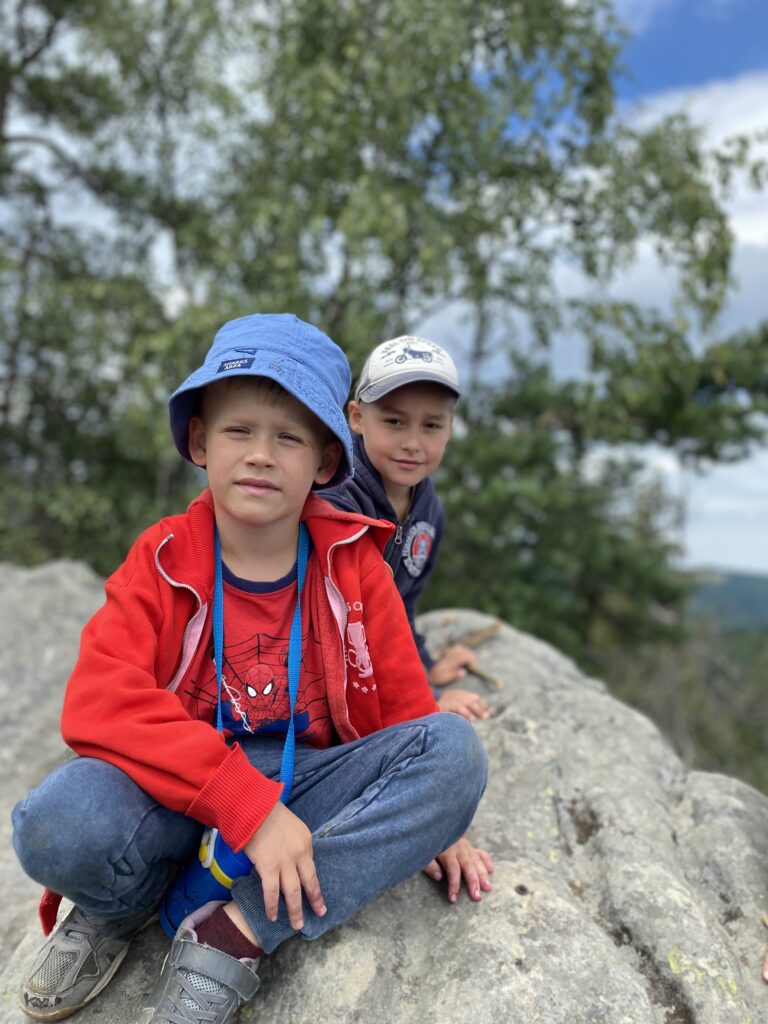

It is difficult to overstate the importance of providing the Ukrainian civil society with funding after one and a half years of war. While they were quick to organise themselves after the invasion, doing tremendous and essential work – as the war dragged on, their financial means to continue doing their part became more and more limited. Believing in the power of community, HIA – in cooperation with Christain Aid – introduced these Flexible Small Grants for smaller organisations that are involved in the humanitarian work in Ukraine. Based on their project proposal, they can receive up to $10,000. However, as children displaced by war run past with not a sign of trouble written on their faces, everyone present knows that no price tag could be appropriate for the happiness in their eyes.

